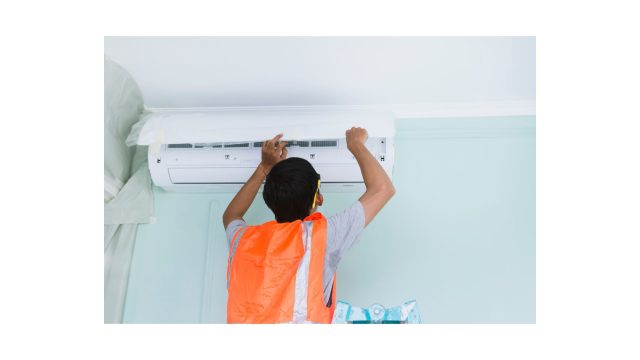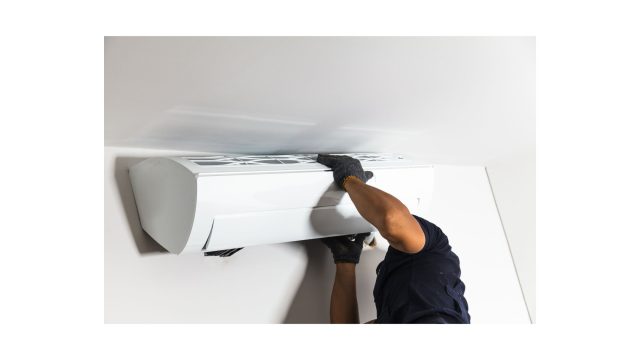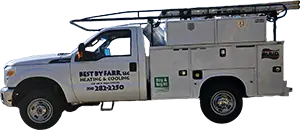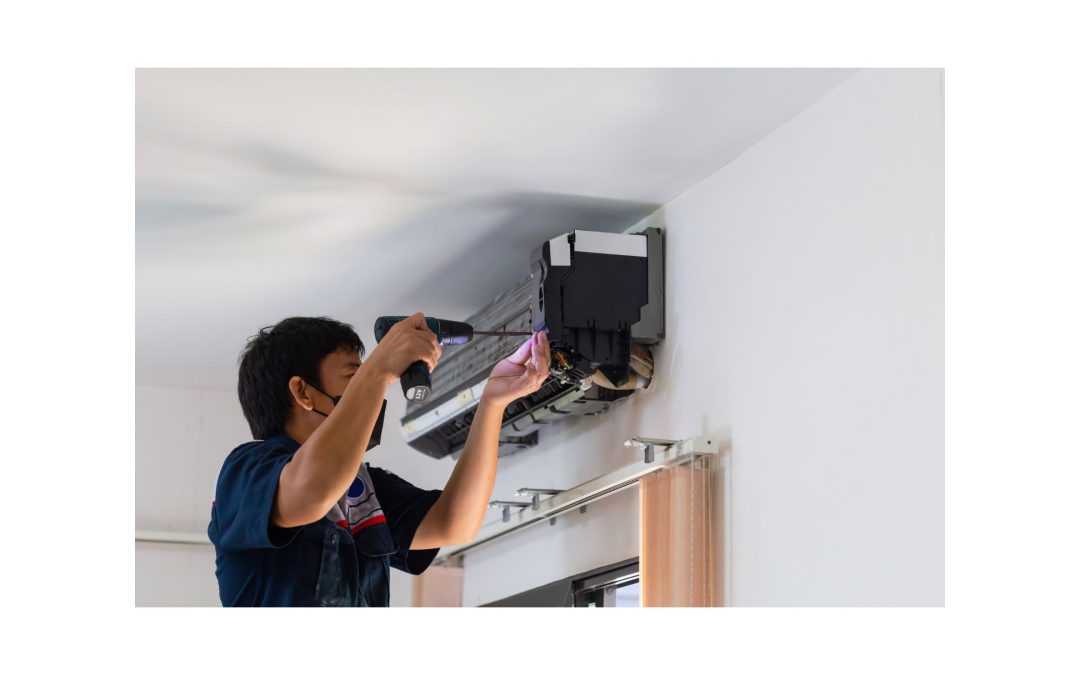In the realm of home comfort and efficiency, HVAC systems play a pivotal role. From regulating indoor temperatures to ensuring air quality, understanding the ABCs of HVAC—Installation, Maintenance, and Repair—is essential for homeowners and enthusiasts alike. Installation marks the foundation of a reliable HVAC system, where precise placement and configuration are crucial for optimal performance. Maintenance stands as the cornerstone of longevity and efficiency, encompassing regular inspections, filter changes, and system tune-ups. However, even with meticulous upkeep, occasional repairs are inevitable. Knowing the signs of HVAC issues and when to seek professional assistance can save both time and money in the long run. Delving into the intricacies of HVAC operations unveils a world of interconnected components and technologies, empowering individuals to make informed decisions and ensure their indoor environments remain comfortable and sustainable. Join us as we embark on a journey through the essentials of HVAC, demystifying complexities and shedding light on the vital practices that keep our spaces cozy and breathable.
Introduction to HVAC Systems: Exploring Heating, Ventilation, and Air Conditioning
Heating, Ventilation, and Air Conditioning (HVAC) systems are the backbone of indoor comfort and environmental control in residential and commercial spaces. Heating systems are responsible for maintaining desired temperatures during colder months, utilizing furnaces, boilers, or heat pumps. Ventilation ensures proper airflow and the exchange of indoor and outdoor air, crucial for maintaining air quality and preventing stagnation of airborne pollutants. Air conditioning systems, commonly referred to as AC, regulate indoor temperatures by removing heat and humidity, providing cool and comfortable environments during hot weather. Understanding the interplay between these components is essential for optimizing comfort and energy efficiency within buildings, making HVAC systems a cornerstone of modern living and workplace environments.

Installation Essentials: Positioning, Sizing, and Ductwork Design
Efficient HVAC installation goes beyond merely placing units within a building. It involves strategic positioning to ensure optimal airflow and distribution of conditioned air throughout the space. Proper sizing of HVAC equipment is crucial, as undersized units may struggle to meet heating or cooling demands, while oversized units can lead to energy wastage and uneven temperature control. Additionally, meticulous design and installation of ductwork are imperative to minimize air leaks and maximize system efficiency. Well-designed duct systems ensure consistent airflow and temperature distribution, contributing to enhanced comfort and reduced energy consumption. By prioritizing these installation essentials, homeowners and businesses can reap the benefits of a well-functioning HVAC system from the outset, avoiding common pitfalls and maximizing long-term performance.
The Importance of Proper Maintenance: Filters, Inspections, and Tune-Ups
Proper maintenance is the key to preserving the efficiency and longevity of HVAC systems. Regularly changing air filters is a fundamental aspect of maintenance, as dirty filters restrict airflow, strain the system, and compromise indoor air quality. Scheduled inspections by qualified technicians allow for early detection of potential issues, preventing costly breakdowns and ensuring peak performance. Additionally, routine tune-ups, including cleaning coils, lubricating moving parts, and checking refrigerant levels, optimize system efficiency and reduce energy consumption. Neglecting maintenance not only leads to decreased performance and higher utility bills but also increases the risk of premature system failure. By investing in regular maintenance, homeowners and businesses can prolong the life of their HVAC systems, improve indoor comfort, and save money in the long run.
Signs of Trouble: Recognizing Common HVAC Issues
Recognizing common HVAC issues is crucial for maintaining the efficiency and functionality of your heating, ventilation, and air conditioning system. Here’s a brief guide to help you identify potential problems:
- Inconsistent temperatures: If you notice uneven heating or cooling throughout your home or commercial space, it could indicate issues with your HVAC system’s distribution.
- Unusual noises: Banging, rattling, or squealing noises coming from your HVAC unit may signal mechanical problems or loose components.
- Increased energy bills: A sudden spike in your energy bills without a change in usage patterns could indicate an inefficient HVAC system.
- Poor air quality: Persistent odors or a buildup of dust and allergens indoors may suggest problems with ventilation or filtration.
- Frost or ice buildup: Ice forming on refrigerant lines or coils could indicate airflow issues or low refrigerant levels, potentially leading to system damage.
By staying vigilant for these common signs of HVAC trouble, you can address issues promptly and avoid costly repairs or system failures. If you notice any of these symptoms, it’s essential to contact a qualified HVAC technician for professional inspection and repair. Regular maintenance and timely interventions will help keep your HVAC system running smoothly and ensure comfort and air quality in your home or workplace.
DIY Maintenance Tips: Simple Tasks for Homeowners to Extend System Lifespan
While some HVAC maintenance tasks require professional expertise, there are several simple tasks that homeowners can perform to extend the lifespan of their systems. Regularly changing air filters, typically every one to three months, ensures proper airflow and prevents dust and debris buildup within the system. Keeping outdoor units clear of debris such as leaves, grass clippings, and dirt helps maintain optimal airflow and prevents overheating. Additionally, sealing ductwork with duct tape or mastic and insulating exposed ducts improve efficiency by reducing air leaks and minimizing heat loss or gain. Performing these DIY maintenance tasks regularly not only enhances system performance and longevity but also reduces energy consumption and lowers utility bills.

When to Call the Pros: Knowing When Professional Repair is Necessary
While DIY maintenance can address some HVAC issues, certain problems require the expertise of trained professionals. If the system fails to produce any heating or cooling, experiences frequent cycling on and off, or emits strange odors or noises, it’s essential to contact a qualified HVAC technician promptly. Similarly, if there are visible signs of damage, such as leaks, rust, or corrosion, professional inspection and repair are necessary to prevent further deterioration and ensure safety. Attempting to repair complex HVAC components without proper knowledge and tools can lead to costly mistakes and compromise system performance. By recognizing when to call the pros, homeowners and businesses can avoid potential hazards and ensure timely resolution of HVAC issues.
Cost Considerations: Budgeting for Installation, Maintenance, and Repairs
When it comes to HVAC systems, budgeting for installation, maintenance, and repairs is crucial for homeowners and businesses alike. Proper financial planning ensures the longevity and reliability of the system while minimizing unexpected expenses. Here are some cost considerations to keep in mind:
- Initial Installation Costs: Factor in the expenses associated with purchasing and installing the HVAC system, including equipment, labor, and any necessary permits or inspections.
- Ongoing Maintenance Expenses: Budget for regular maintenance tasks such as inspections, tune-ups, and filter replacements to prevent costly repairs and extend the lifespan of the system.
- Repair Costs: Allocate funds for unexpected repairs or component replacements that may arise due to wear and tear or unforeseen issues with the HVAC system.
- Energy Efficiency Upgrades: Consider investing in energy-efficient upgrades such as smart thermostats or high-efficiency equipment to reduce long-term operating costs and environmental impact.
- Long-Term Savings: Remember that while upfront costs for installation and upgrades may be higher, the long-term savings in energy bills and maintenance expenses often justify the investment.
By carefully budgeting for installation, maintenance, and repairs, homeowners and businesses can ensure the optimal performance and efficiency of their HVAC systems while minimizing financial stress.
Upgrading Your HVAC System: Understanding Efficiency Ratings and Modern Technologies
Upgrading an outdated HVAC system offers numerous benefits, including improved energy efficiency, enhanced comfort, and reduced environmental impact. When considering an upgrade, it’s essential to understand efficiency ratings such as SEER (Seasonal Energy Efficiency Ratio) for air conditioners and AFUE (Annual Fuel Utilization Efficiency) for furnaces. Higher efficiency ratings indicate greater energy savings and lower operating costs over time. Additionally, exploring modern HVAC technologies, such as smart thermostats, variable-speed compressors, and zoned heating and cooling systems, can further optimize comfort and efficiency. While upfront costs for upgrading may be higher, the long-term savings in energy bills and maintenance expenses often justify the investment. By embracing advancements in HVAC technology and prioritizing energy efficiency, homeowners and businesses can enjoy superior comfort and sustainability while reducing their carbon footprint.
Conclusion
Ensuring the optimal functioning of your HVAC system is essential for maintaining indoor comfort and efficiency. From understanding the fundamentals of heating, ventilation, and air conditioning to recognizing signs of trouble and knowing when to seek professional assistance, each aspect plays a crucial role in preserving the integrity of your system. By prioritizing proper maintenance, homeowners and businesses can prolong the lifespan of their HVAC systems, improve indoor air quality, and minimize energy consumption. Additionally, considering factors such as installation, ongoing maintenance, and potential upgrades allows for effective budgeting and long-term planning. At Best By Farr LLC, we’re committed to providing top-quality AC services in Cottonwood, AZ, backed by years of industry experience and a dedication to customer satisfaction. Contact us today at (928) 282-2250 to learn more about how we can meet all your air conditioning needs and ensure your comfort year-round.


